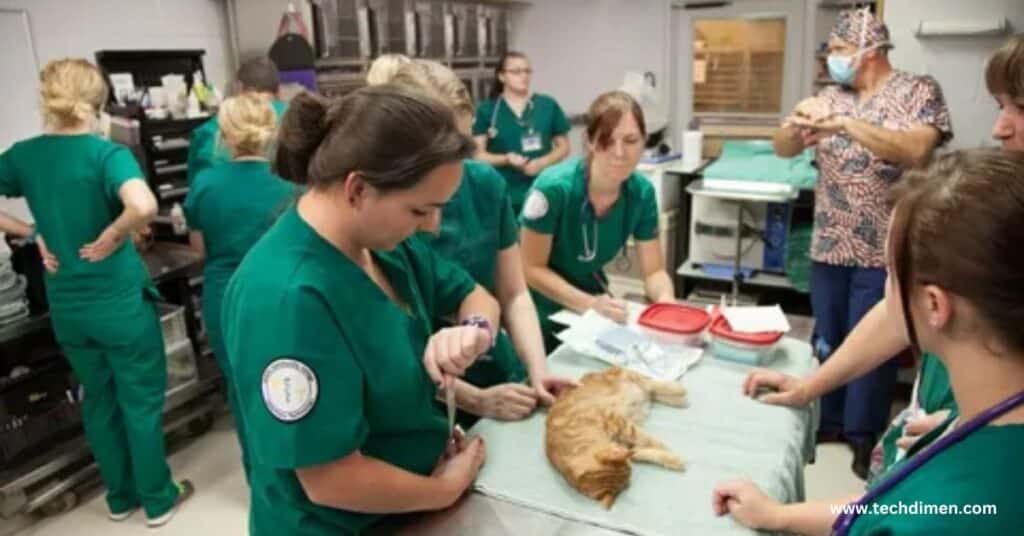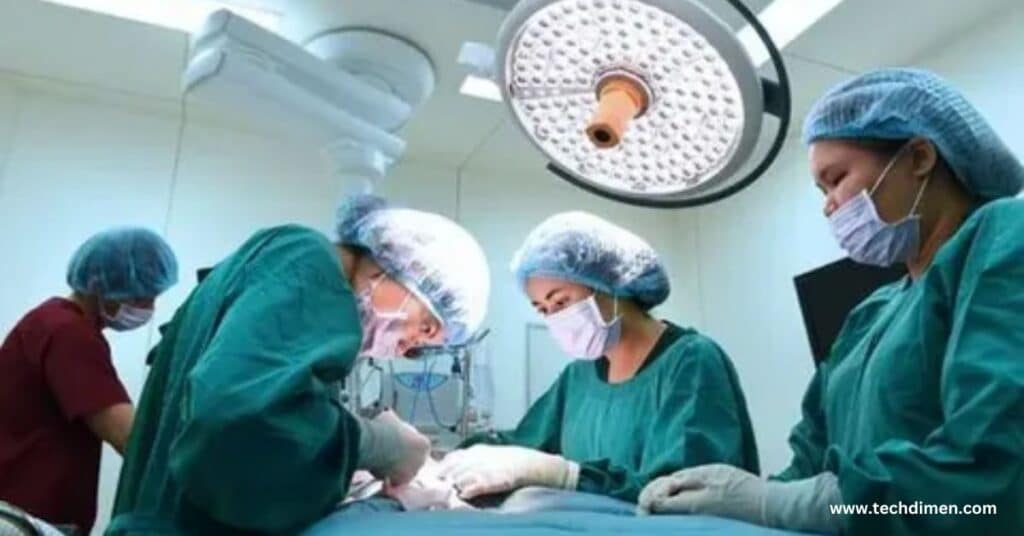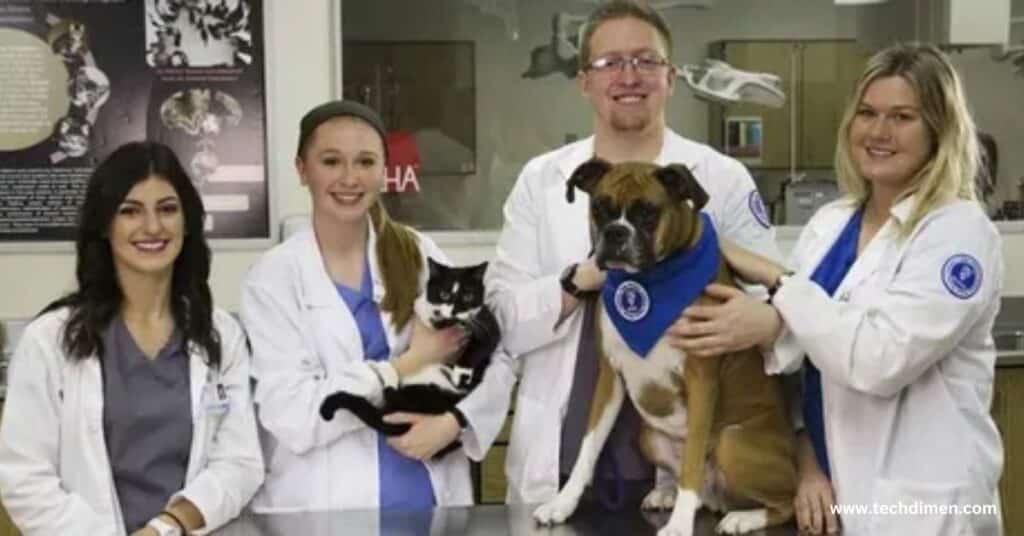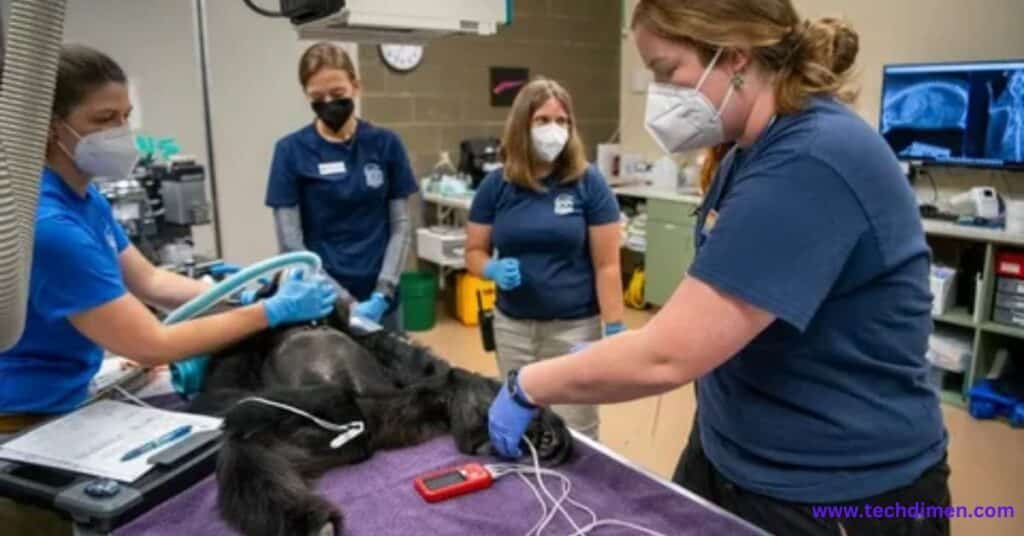Veterinary Technician Specialties medicine is not just about veterinarians it is also about the highly skilled, deeply dedicated veterinary technicians working behind the scenes. These professionals do not just hold animals during exams or assist in surgery many go on pursue advanced certifications and specialized careers that make them vital to modern animal care.
What Are Veterinary Technician Specialties?
Veterinary technician specialties, often abbreviated as VTS, refer to advanced areas of practice within veterinary medicine where technicians receive formal training and certification in a specific discipline. These specialties are officially accredited and recognized by the National Association of Veterinary Technicians in America .
To earn the VTS designation, a technician must demonstrate advanced clinical knowledge, document years of hands-on experience in a particular area, complete a series of rigorous application steps, and successfully pass a specialty certification exam. Additionally, continued education is required to maintain certification. Becoming a board certified veterinary technician elevates your role in a clinical setting and opens doors to leadership, teaching, and research opportunities.
How to Become a Veterinary Technician Specialist

The path to specialization is demanding but highly rewarding. Following graduation, you must pass the Veterinary Technician National Exam in order to become a credentialed veterinary technician. Each state may also have additional licensing or registration requirements through its respective veterinary medical board.
Once credentialed, technicians seeking specialization need at least three to five years of focused clinical experience in the desired specialty area. They must also keep a detailed log of relevant cases and complete a skills check list under the supervision of a veterinarian or VTS mentor. Finally, candidates must pass a specialty exam administered by the relevant VTS academy.
Recognized Veterinary Technician Specialties
The table below outlines the major NAVTA approved specialties and the academies that oversee them:
| Specialty | Description | Governing Academy |
| Emergency & Critical Care | Intensive care for trauma or critically ill animals | Academy of Veterinary Emergency and Critical Care Technicians |
| Anesthesia & Analgesia | Pain management and anesthetic monitoring | Academy of Veterinary Technicians in Anesthesia and Analgesia |
| Dentistry | Advanced dental cleaning, radiology, and surgical assisting | Academy of Veterinary Dental Technicians |
| Internal Medicine | Subspecialties include cardiology, neurology, oncology | Academy of Internal Medicine for Veterinary Technicians |
| Zoological Medicine | Care for exotic, zoo, and wildlife species | Academy of Veterinary Zoological Medicine Technicians |
| Behavior | Training and behavioral assessments | Academy of Veterinary Behavior Technicians |
| Physical Rehabilitation | Post operative or injury recovery techniques | Academy of Physical Rehabilitation Veterinary Technicians |
| Clinical Pathology | Lab testing and diagnostic procedures | Academy of Veterinary Clinical Pathology Technicians |
| Diagnostic Imaging | Radiology, ultrasound, MRI imaging | Academy of Veterinary Technicians in Diagnostic Imaging |
| Nutrition | Creating specialized diets and feeding plans | Academy of Veterinary Nutrition Technicians |
Benefits of Vet Tech Specialization

Pursuing a specialty as a veterinary technician offers many professional and personal advantages. Technicians who earn a designation can often expect to earn significantly higher salaries, with some making up to 30% more than their non specialized peers. In addition to better compensation, these specialists gain greater autonomy and respect within their clinical teams, often taking on leadership roles, mentoring junior staff, or contributing through speaking or publishing. Many also report enhanced career satisfaction thanks to the opportunity to develop niche expertise.
Case Study Veterinary Anesthesia and Analgesia Specialist
Jenna, a certified veterinary technician at a high volume surgical center, dedicated five years to mastering anesthetic protocols and surgical preparation. Motivated by her passion for precision and patient safety, she pursued a Veterinary Technician Specialty in Anesthesia and Analgesia.
Her journey began with graduation from an AVMA accredited program, followed by successful completion of the Technician National Examination (VTNE)
Today, Jenna leads the anesthesia department at her clinic. She plays a vital role in training new staff, developing best practices, and is a regular speaker at. Her specialization not only elevated patient care standards but also boosted her income by 25% and opened the door to a deeply rewarding and respected career path.
Exploring Specialty Areas in Depth

Veterinary dental technicians play a critical role in oral healthcare by assisting with dental cleanings, radiographs, and even surgical extractions. Clinical pathology technicians and lab animal technicians handle diagnostic testing by analyzing blood, urine, and tissue samples to help inform treatment plans.
veterinary technicians focus on the unique health needs of horses. They often assist with field procedures and even surgical recovery, especially in areas rich in equestrian culture. Veterinary behavior specialists use evidence based techniques to support animals with anxiety, aggression, or other behavioral issues. These professionals often collaborate with trainers and veterinarians to support holistic treatment plans for companion animals.
The Role of Continuing Education
Continuing education is not just encouraged but required for most credentialed vet techs and all VTS professionals. Whether through online webinars, hands-on workshops, or national conferences, technicians have access to a growing body of advanced veterinary nursing courses and specific seminars. Courses cover topics such as animal rehabilitation therapy, diagnostic imaging updates, and the latest developments in veterinary clinical services. Ongoing education ensures that vet techs stay current with emerging technologies and best practices in patient care.
Future of Veterinary Technology Careers

According to the U.S. Bureau of Labor Statistics, significantly outpacing the average for all occupations. This surge is driven by a rising demand for high quality animal care and the growing array of services offered at modern veterinary clinics. As practices increasingly adopt advanced medical technologies such as diagnostic imaging, laser therapy, and electronic health records credentialed veterinary technicians with specialized training will become indispensable.
FAQS
What are veterinary technology specialties and how do they differ from standard vet tech roles?
Veterinary technology specialties are advanced, highly focused career tracks within veterinary medicine. Unlike general vet tech roles, which cover a broad range of clinical tasks, specialties like anesthesia, emergency care, or internal medicine require rigorous certification, years of focused experience, and expertise in a specific discipline.
How do I become a veterinary technician specialist in a recognized specialty area?
You will need to graduate from an AVMA accredited veterinary technology program and pass the Veterinary Technician National Exam (VTNE) first. Then, accumulate a minimum of 3 to 5 years of experience in your chosen specialty. You’ll also be required to complete case logs, document advanced skills, and pass a specialty certification exam administered by a NAVTA recognized academy like the Academy of Veterinary Emergency and Critical Care Technicians or the Academy of Veterinary Technicians in Anesthesia and Analgesia.
Which organizations oversee the certification process for these specialties?
The National Association of Veterinary Technicians in America oversees the recognition of veterinary technician specialties. Each specialty has its own academy that sets specific standards and administers certification. These academies, such as the Academy of Veterinary Dental Technicians Or the Academy of Veterinary Behavior Technicians , are responsible for vetting applicants and maintaining credentialing standards.
How many veterinary technology specialties are recognized today?
As of now, NAVTA recognizes more than a dozen veterinary technician specialties. These include emergency and critical care, anesthesia and analgesia, dentistry, internal medicine, clinical pathology, diagnostic imaging, behavior, physical rehabilitation, nutrition, and zoological medicine, among others. Each area offers unique roles, responsibilities, and career advantages.
Are specialty veterinary technician roles only available in large hospitals or universities?
Not at all. While specialty hospitals and teaching institutions are common employers of VTS certified professionals, many general and private practices also value and employ specialists especially in anesthesia, dentistry, or internal medicine.
Can a vet tech pursue multiple specialties over time?
Yes, it is possible, though it is a demanding path. Some professionals hold dual VTS certifications, such as in anesthesia and emergency care. Each specialty has its own set of application criteria and case requirements, so obtaining multiple certifications requires time, dedication, and a strong support system within your clinical environment.
What kind of salary increase can I expect with a VTS certification?
Veterinary technician specialists typically earn 20% to 30% more than general credentialed technicians. Salary increases depend on the specialty, region, and type of employer. Specialties like emergency and critical care or diagnostic imaging often command the highest pay due to the advanced nature of their responsibilities and the urgent nature of their work.
Do I need a bachelor’s degree to become a veterinary technician specialist?
Not necessarily. Many VTS certified professionals hold associate degrees from accredited programs. However, a bachelor’s degree may give you an edge in competitive specialties or in leadership roles within a hospital. Regardless of your degree, hands on experience, skill documentation, and passing the specialty exam are key components of certification.
Is continuing education mandatory for VTS professionals?
Absolutely. Continuing education is essential not just for maintaining certification but also for staying current with medical advancements and clinical protocols. Most specialty academies require members to complete a certain number of CE hours each year, often with a focus on topics specific to their specialty, like anesthesia monitoring or advanced diagnostics.
Where can I access veterinary specialty technician programs and training?
You can start with website, which lists all currently recognized specialty academies along with their contact information and program links. Most academies also offer guidance documents, eligibility criteria, application timelines, and case log templates directly through their websites. National conferences and veterinary CE events often host workshops and mentorship programs tailored for aspiring specialists.
Final Thoughts
If you are deeply committed to care and want to push the boundaries of what veterinary technicians can achieve, then specialization might be the perfect next step. Whether you’re drawn to the high stakes world of emergency medicine, the detail oriented field of clinical pathology, or the evolving discipline of behavioral science, there a specialty that fits your passion. Specialized veterinary technicians do not just advance their own careers, they help transform the standard of care in medicine. By pursuing specialized vet tech training, you contribute meaning fully to patient outcomes and become a leader in your field.

Jhon AJS is a tech enthusiast and author at Tech Dimen, where he explores the latest trends in technology and TV dimensions. With a passion for simplifying complex topics, Jhon aims to make tech accessible and engaging for readers of all levels.







